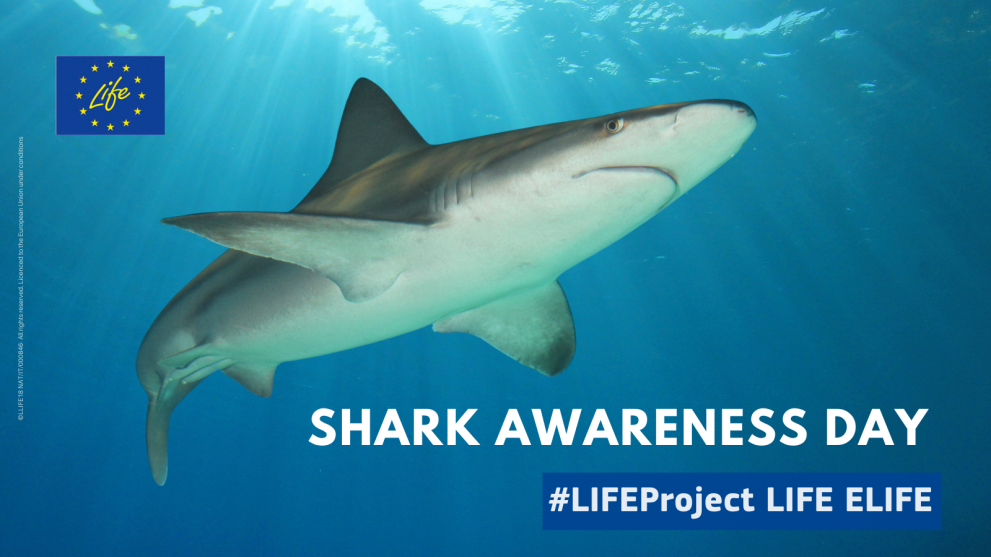
Sharks are the sea’s natural gatekeepers, maintaining ecosystem food chains and healthy marine beds. Any drastic changes to their numbers can dangerously tip the balance, leading to unpredictable fluctuations in biodiversity. From sharks to rays, skates and sawfish, the Mediterranean used to be teeming with marine predators. But their habitats are being destroyed, the waters are becoming more polluted, and they are accidentally caught in fishing nets and lines.
LIFE ELIFE is promoting conservation, shark-friendlier fishing practices and eliminating by-catch incidents. It is also boosting sharks’ image and reputation through awareness campaigns about how central they are to our ecosystems, seas, and food chains. A world without sharks is a less resilient one, with serious consequences.
Mediterranean sharks and rays are the most threatened group of fish in Europe. Over the last 50 years, the Mediterranean has lost 41% of these top predators and 34% of the total fish population. According to the International Union for Conservation of Nature (IUCN) Mediterranean Red List, 39 of the 73 species assessed – or 53% – are classified as critically endangered, endangered, or vulnerable. Beyond the anthropogenic factors threatening their existence, sharks are also slow at breeding, and maturing, have few offspring, but long lifespans. In an engagement exercise with local fishers in major Italian fishing harbours, it was revealed that over 88% usually catch sharks, with 75% of these sharks still alive when caught. By improving fishing practices, such as bottom trawling, gillnets and longline fishing, these species can be protected and released, without impacting the fishing industry.
Through partnerships, and pilot and demonstrative actions, LIFE ELIFE has provided data for assessing the status of these species to marine management authorities, for the adoption of specific local management plans. The project is reducing the by-catch of threatened or endangered species, such as the sandbar shark and basking shark. For those sharks caught accidentally, fishers have been informed on safe release practices, to reduce mortality by 50% in targeted areas. For those at sea, and making a living through fishing, the project has provided funding options to purchase low-impact fishing devices. Via grants to buy circle hooks and use sorting grids during bottom trawling, fishers can continue their livelihoods and protect vulnerable shark and ray species. Around 1 500 professional fishers have been educated about this technology; with 100 actively involved in testing stages, and 50% using shark grids and low-impact longlines when out at sea. And for pescatarians and seafood afficionados, more sustainable fishing practices, sale of local fish dishes and friendly fishing labels will be on future menus.
The five-year project LIFE ELIFE has been focused on conservation practices in the areas of Chioggia, Gallipoli, Lampedusa, Cir Marina/Porto Cesareo, North Sardinia, Marsala, Mazara del Vallo and Pelagie Islands. Their waters are part of the Central Tyrrhenian Sea, which was recognised as a Special Protected Area of Mediterranean Importance in 2010.
Partners of LIFE ELIFE are marking Shark Awareness Day with a series of events and activities being held at aquariums, and fishing lodges in Italy, Greece, and Cyprus. These include awareness and educational sessions about sharks’ role in biodiversity, shark biology lessons, conservation actions and partnership meetings.
Like sharks and their migratory patterns, the project spans international sea borders. It has rallied the efforts of at least 10 other EU funded projects involved in marine conservation and fisheries, engaging stakeholders across EU countries in communication activities. LIFE ELIFE is aligned to the EU Habitats Directive.
Details
- Publication date
- 12 July 2024
- Author
- European Climate, Infrastructure and Environment Executive Agency

